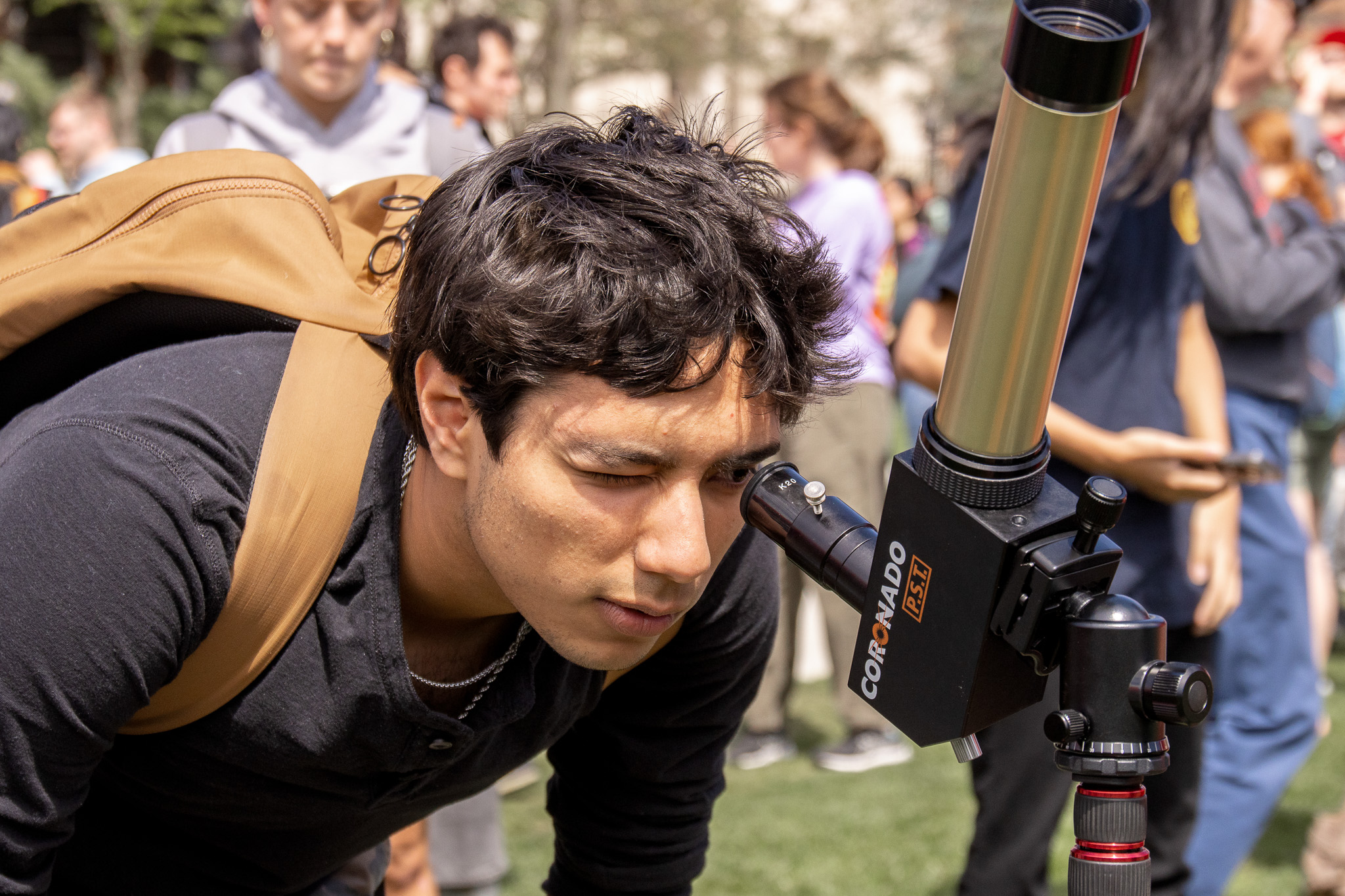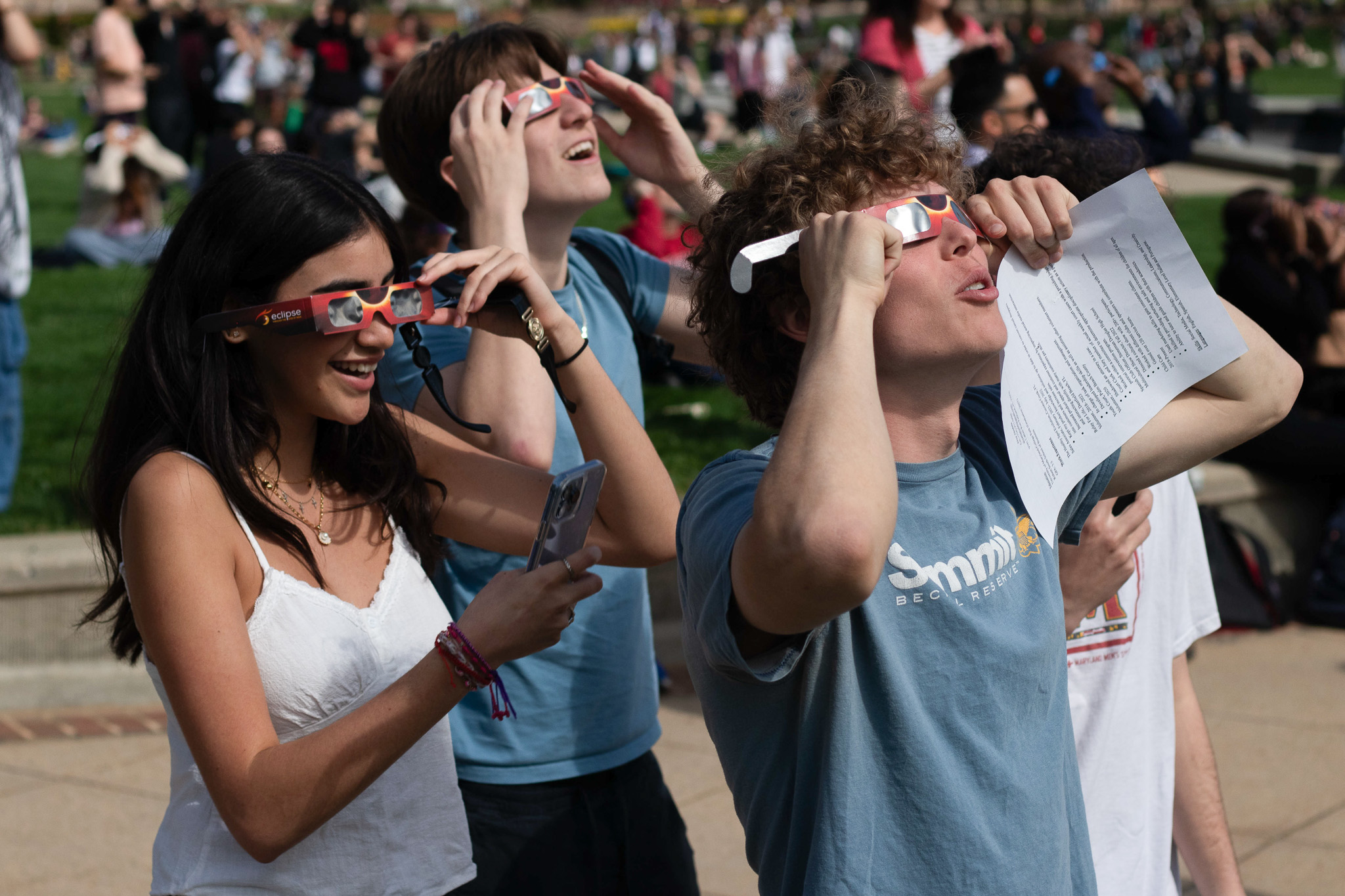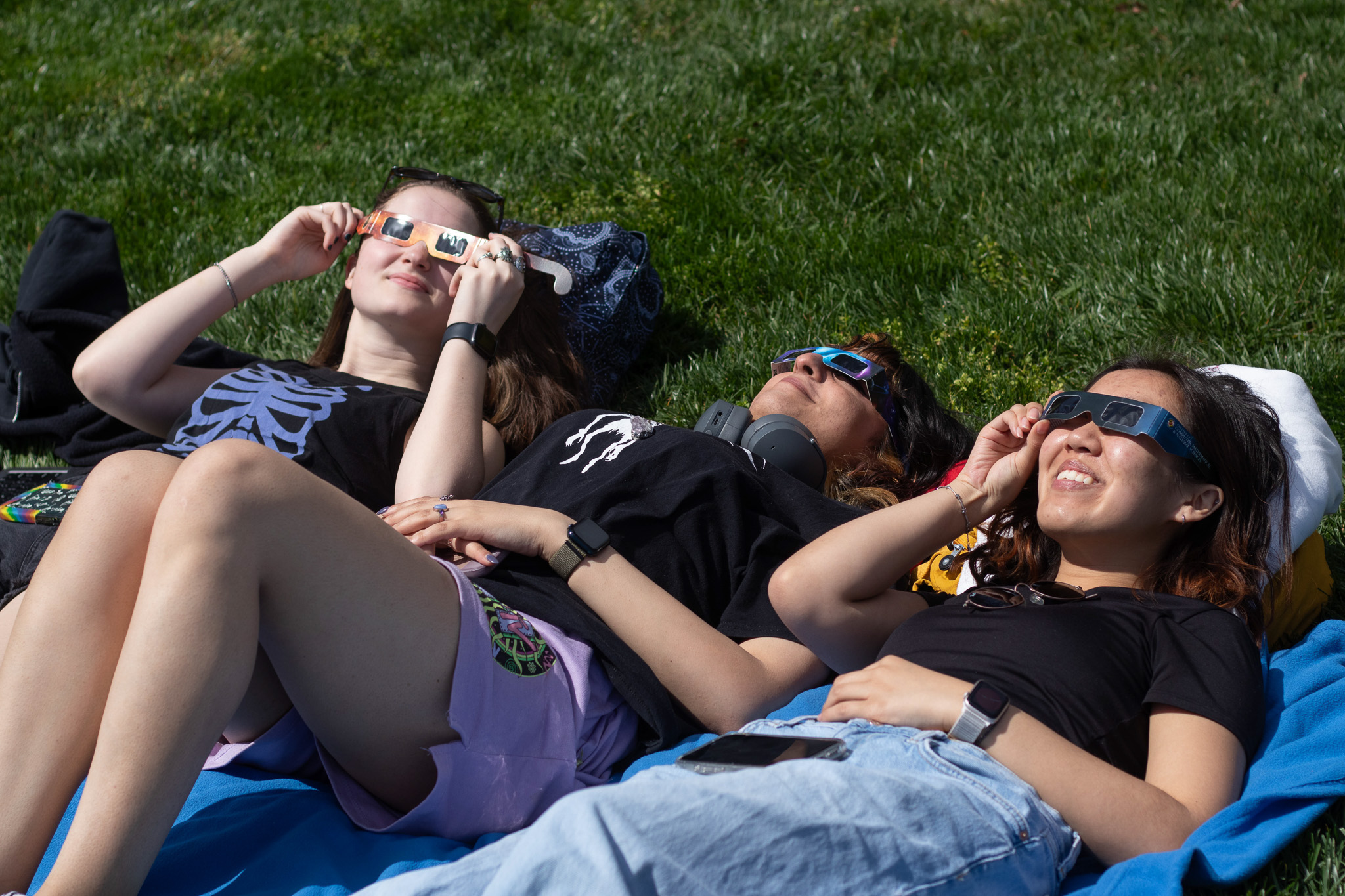Thousands of University of Maryland students, professors and community members gathered in front of Glenn Martin Hall Monday to watch the 2024 solar eclipse.
A solar eclipse occurs when the moon crosses in front of the sun, according to Elizabeth Warner, principal faculty specialist in the astronomy department and an organizer of the eclipse viewing event.
Participants were able to see a partial eclipse because Maryland was outside the path of totality, or the area where viewers get the most direct view of the moon blocking the sun, Warner said.
The eclipse began at about 2 p.m., reached its maximum peak at about 3:20 p.m. and ended at 4:30 p.m., according to Jordan Goodman, a distinguished university professor who teaches in the physics department.
This university’s computer, mathematical and natural sciences college, astronomy department and Space Sciences Outreach Cooperative hosted the event.
[UMD doctoral student helps discover possible volcano on Mars]
“It’s important for us to share this interesting science with the University of Maryland community and draw attention to this event that’s not happening again in the United States till 2044,” Abby Robinson, assistant dean of communications for the college, said.
Attendees received about 4,500 pairs eclipse glasses that met ISO standards. Warner and the campus observatory also provided telescopes, which were set out to provide attendees with a closer view of the eclipse.
Protective eyewear is needed to safely view an eclipse because the sun’s harmful ultraviolet radiation rays can cause eye and vision damage, according to Goodman.
Students, faculty and community members praised the event and their experience watching the eclipse unfold.
Miri Marshall, a Prince George’s County resident, visited the university to watch the eclipse with her son.
“It’s almost like a once-in-a-lifetime thing,” Marshall said. “Looking up at the sun like that and seeing this just reminds me of how tiny we are as humans in this huge universe and how lucky we are to be here.”
Freshman electrical engineering major Leaana Khan said she didn’t want to miss out on this opportunity to see the eclipse.
Khan saw the most recent eclipse in 2017 through a homemade pinhole projector instead of using glasses, but said it wasn’t very exciting because she wasn’t in an area where the sun was fully covered.
[Harvard professor discusses history of life on earth in UMD lecture]
Ashley Cortez, a junior enrolled in letters and sciences, saw an eclipse for the first time Monday. She was in middle school during the last eclipse and didn’t watch it out of fear of using fake viewing glasses, she said.
“I always want to live life to the fullest and try different things,” Cortez said. “I’m just glad that UMD gave the experience.”
Amitabh Varshney, the computer, mathematical and natural sciences college dean, went to the event to observe the eclipse and expressed his joy with the large turnout.
“I’m so pleased that we were able to afford this really amazing view of the functioning of the solar system to all the students,” Varshney said.











